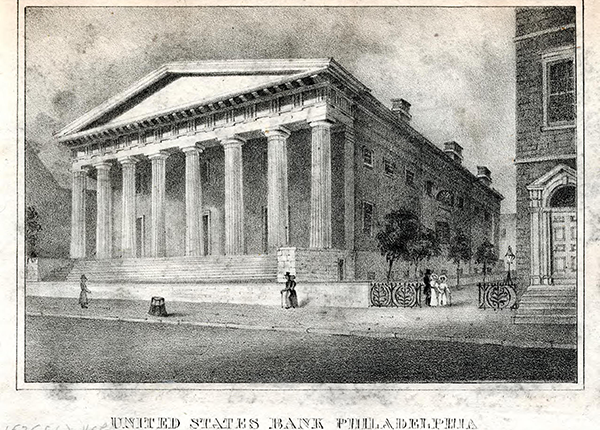Summary
McCulloch v. Maryland involves one of the first disputes in American history over the scope of the new national government’s powers: whether Congress could incorporate a Bank of the United States. This was controversial in the 1790s because Southern members of Congress and the Executive Branch, such as James Madison and Thomas Jefferson, believed that a national bank would benefit only Northern mercantile interests and would create a financial aristocracy; they believed that the new nation should depend on farmers and what they called “agrarian virtue.” They generally feared a powerful national government. Alexander Hamilton and others, on the other hand, argued that a national bank was critical to facilitating commerce and the borrowing of money, both of which would be indispensable to the new nation.







